SS #89: Dorothy Sayers’ Latin Lament
Dorothy Sayers is author of the essay that brought back classical education as a major school movement: “The Lost Tools of Learning.” However, that was not the only essay on education she composed. Today, Mystie Winckler, Brandy Vencel, and special guest Renee Shepard discuss Sayers’ other essay, “Ignorance and Dissatisfaction,” to better understand Sayers’ thoughts about and principles for education.
In this essay, the ignorance and dissatisfaction Sayers’ discusses is her own. Although she spent twenty years learning Latin, she remained unable to read it fluently. If, as the classical education authors tell us, fluent Latin reading is our goal, we need to heed Sayers’ warnings about how not to do it. Unfortunately, we see we are often still practicing the methods that kept Sayers ignorant and dissatisfied in Latin.
As Brandy, Mystie, and Renee discuss this article, they also touch on homeschooling math, being confident curriculum users, grammar woes, and more! Even if you want to avoid talking about Latin, you’ll want to listen to these experienced homeschool moms weave in their applications and insights.
Listen to the podcast:
TUNE IN:
Apple Podcasts | Spotify | Stitcher
Dorothy Sayers loves Latin
Today’s Hosts and Source
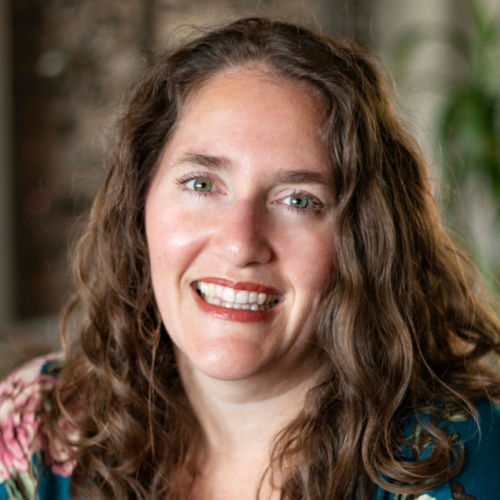
Brandy Vencel
Brandy’s oldest-of-four, a homeschool graduate pursuing further classical studies now, became fairly fluent in Latin and began Greek while in her homeschool.

Mystie Winckler
Mystie has homeschooled classically for over a decade, used multiple Latin programs, and has figured out that endings matter in Latin.
Dorothy Sayers is known for her essay “The Lost Tools of Learning,” but it turns out that was not her only foray into discussing education. The article “Ignorance and Dissatisfaction” was originally a speech given in 1952 to the Association for the Reform of Latin Teaching, and shares her own education experience, particularly as it relates to learning Latin.
After 20 years of Latin instruction, I was “unable to read a single Latin author with ease or fluency, unable to write a line of Latin without gross error, unfamiliar with the style and scope of any Latin author, except as I had taken refuge in English translations, and stammering of speech because by this time all three pronunciations were equally alien and uncertain.”
Dorothy Sayers, “Ignorance and Dissatisfaction”
Scholé Every Day: What We’re Reading
The Didascalicon, Hugh of St. Victor
In the Vineyard of the Text: A Commentary on the Didascalicon, Ivan Illich
Mystie is reading Hugh of St. Victor’s Didascalicon as a part of her NSA grad class (which Renee is also taking). Because it will factor into her final paper, she’s also reading a commentary on it that’s making her think she didn’t actually read the source.
Uncovering the Logic of English, author
Renee is reading about the logic of English to help her analytical child learn to read in a more relatable way. English, it turns out, really does make sense!
The Origins of Totalitarianism, Hannah Arnedt
Brandy started off by bragging about buying this book and promising to read it in the future.
The Complete Father Brown Mysteries, G.K. Chesterton
But Brandy is actually currently reading Chesterton’s mysteries aloud with her youngest on evenings when the others are gone or busy. Chesterton certainly has a way with words.
Sayers’ Secret #1: Don’t teach Latin too slowly.
Sayers’ believed that she did not attain true fluency in Latin partly because the study was too painstakingly slow, with much backtracking.
Charlotte Mason noted that a student’s joy “was to go on,” which corresponds to Sayers’ first lament – she rarely tasted real, noticeable progress as she learned Latin.
Going too slow can be a problem in any subject, not only languages.
It is possible even to overemphasize slow reading (which Brandy said in 2015 matters more than you might expect). Some books benefit from slow reading, but not all books do, and it is also a habit of the learned to read a book – even a great book – at a decent clip to stay engaged in the storyline. After all, great books are meant to be revisited. It is acceptable to not plumb the depths in a single reading.
“I am quite sure that for the average child, for whom it is important not to spend too much time and trouble (not to mention tears) upon the rudiments“
Dorothy Sayers, “Ignorance and Dissatisfaction”
Don’t take any subject too slowly.
Spending too much time upon the rudiments can apply beyond reading and languages to also subjects like math and grammar.
Going too painfully slow over the fundamental facts, belaboring the material, kills the love for the subject.
As teachers, we have to walk than balance between mastering the material and having them use the knowledge they’ve gained in an interesting way, feeling progress.
We do not want students to be bored with learning by making it tedious.
Sayers’ Secret #2: Start Latin at age 6.
Sayers’ father had been a boys’ school teacher, teaching Latin to young schoolboys. When Sayers was 6, he was no longer teaching, but practiced his original trade with his only child, a daughter, in the same way he taught at school.
Sayers is convinced that her father starting her on Latin at six was the right thing. Using the ages of six and seven to memorize declensions and paradigms was, she claims, a good use of memory because at that age, collecting and memorizing were enjoyable.
“It is all nonsense to pretend that small children hate and are bored by learning things by heart. They like it. They have a passion for it. If they are given no outlet for this passion in school, they will devote themselves to memorising number-plates or cricket averages.“
Dorothy Sayers, “Ignorance and Dissatisfaction”
Cross-referencing what Sayers says of the grammar stage in The Lost Tools, Sayers’ counts the “Poll-Parrot” years as the late-6 or 7-year-old to eleven. Even as she affirms young children’s passion for memorization, she harnesses that in second to fifth grade, not preschool to second.
Sayers’ concern is not so much filling children’s minds while they’re young as starting to engage their minds and imaginations before they hit puberty, questioning, and resistance. What we want in the early years is to capture and stoke their delight in knowledge.
Whatever we desire the students to love for a lifetime, we should make the introduction of that thing to them when they are easily enamored of discovery and collection.
The limits of relying on memory in the early years
Sayers’ lament in her early Latin studies was not that her father relied on memory work, but that he relied exclusively on memory. She delighted in the memorization, but she never saw Latin as a useable language because there was no reading or speaking tied to the syllables she could happily spout off.
So we see a more nuanced perspective on memory here that ought to inform our reading of “The Lost Tools of Learning.” When she speaks of children memorizing easily and feeding them the raw material to memorize, she does not mean to rely exclusively on rote memory, nor does she consider memory only to be adequate to learning.
The way Latin is taught today continues to fall into the same traps Sayers laments in this essay: the basics are overtaught, memory is not tied to use, and the goal of reading Latin is not given to the student. We are raising up students working the tricks to get the worksheets right in class, not students excited to become fluent in another language.
Your brain will stop storing information if you don’t ever need to use it. Memory without practical application – not years later, but alongside – of the material learned, will not stick.
Why Dorothy Sayers thinks we should learn Latin
Most culturally influential people as well as the mass populace, today “are under the impression that Latin is a bit of antiquated upper class trimming, of no practical value to anyone.”
Dorothy Sayers, “Ignorance and Dissatisfaction”
She gives many good reasons to study Latin in her essay, but none of them are that we can and should read the classical authors in their original rather than in translation. On the other hand, she also quotes Virgil in Latin, using it to add humor to her speech.
Even though she was dissatisfied with her Latin instruction, she still holds the Latin grammar as one of the most important tools she was given as a student.
“To embark on any complex English construction without the Latin Grammar is like trying to find one’s way across country without map or signposts.”
Dorothy Sayers, “Ignorance and Dissatisfaction”
Sayers’ Secret #3: Read easy Latin texts for fluency.
Rather than starting with Caesar, reading something familiar that already holds our students’ interest and affection, like Scripture via the Vulgate, to practice reading Latin early can be helpful. Not only does it let them see that Latin is for reading, but it gives them the sense of success and usefulness that provides motivation for further studies.
Students are not going to commit to continue the hard work of any strenuous subject if they decide early on that they are not good at it or that it is pointless. So giving our students meaningful work within their abilities to cultivate interest and affection is paramount.
“Above all things we must take care that the child, who is not yet old enough to love his studies, does not come to hate them and dread the bitterness which he has once tasted, even when the years of infancy are left behind. His studies must be made an amusement: he must be questioned and praised and taught to rejoice when he has done well.”
Quintilian, Institutes of Oratory, book I
Sayers believes that students can more readily first read medieval Latin, which is simpler to read than Caesar and Virgil and Cicero. Not only are these texts easier to read and thus give students a reason and motivation to continue their students, but they are also more relevant and important because they are the Christian backbone of our civilization.
“Our civilisation, such as it is, remains in its living bones a Christian civilisation—and the Augustan Latin was never Christian. Even those who most roundly assert that Christianity is dead bring it to the bar of their inherited Christian values, and by the concentrated rage which they bring to its obsequies proclaim that it is in many ways disconcertingly alive. Nobody is either annoyed or delighted over the assertion that Great Pan is dead and the Olympians only myths. And the language in which Augustine of Hippo fought the Manichees and—later, but without breach of continuity—Aquinas defended Aristotle, and Galileo fought Rome for the movement of the earth, is, if dead, dead with a different deadness from that of a language which officially recognises only the Olympians. To set up a great gap in learning and literature between the days of Augustus and the Renaissance is not true to life or history.”
Dorothy Sayers, “Ignorance and Dissatisfaction”
We don’t need a pure and undefiled Latin. Medieval Latin, with its vulgarisms and slang and vibrancy, is a better key to loving and learning the language for itself than Cicero.
“But if [Latin] is dead to-day, it is because the Classical Scholars killed it by smothering it with too much love.”
Dorothy Sayers, “Ignorance and Dissatisfaction”
Sayers’ Secret #4: Stick with a single Latin pronunciation
Dorothy Sayers felt very disoriented by the three various pronunciations and contexts she was made to learn.
Does this apply more generally to being inconsistent in curriculum and jumping ship too early and often? Yes.
Though sometimes the curriculum and approach chosen for our children is not in our control and the benefits of the switch outweigh the disadvantages, we must recognize that changing pronunciations, changing math programs, changing approaches does do harm to our students’ sense of cohesion in those areas.
Often the reason we switch curriculum in math, Latin, or other hard subjects is that we ourselves aren’t able to actually teach the subject. We can improve our own ability, but we aren’t always able to. Rather than curriculum inconsistency, however, tutoring and outsourcing is often what we need.
“My mere existence was holding [my son] back.
Brandy Vencel
Let Dorothy Sayers interpret Dorothy Sayers
When we read both essays by Sayers together, we get a better understanding of what she is NOT saying in “The Lost Tools.”
Renee would like to remove what Sayers says about history from Lost Tools and feels justified in this action by her reading of “Ignorance and Dissatisfaction.” Today, many interpret her advice to memorize dates, any dates, as a validation of random-fact rote memory, but we see in her comments on Latin memorization that Sayers believed the content memorized should be needed and used in context – and not years down the road, but immediately.
The point of the “poll-parrot” stage is not cramming heads full of facts, but teaching the impressionable, easily amused children to love what is lovely – learning – before they get skeptical and argumentative.
Teachers do not need to be – and should not be – overbearing micromanagers. We need to give them the space to make the learning their own. We can teach with the expectation that knowledge is enjoyable.
May we all also learn from and imitate Dorothy Sayers’ humility and humor:
“But ignorance has seldom prevented anybody from laying down the law about how other people ought to run their jobs, and propose impracticable solutions.”
Dorothy Sayers, “Ignorance and Dissatisfaction”
Mentioned in the Episode
Lingua Latina per se illustrata. Pars I: Familia Romana, Grammatica Latina (Latin Edition)MinimusEasy Grammar 5 – Teacher EditionThe Orator’s Education, Volume I: Books 1–2 (Loeb Classical Library)Hobbitus Ille: The Latin HobbitHarrius Potter et Philosophi Lapis (Harry Potter and the Philosopher’s Stone, Latin edition)Cattus Petasatus: The Cat in the Hat in Latin (Latin Edition)Winnie Ille Pu (Latin Edition)
Listen to related episodes:
SS#145 – Why Latin?? (with Angela Reed!)
SS #124 – Redeeming the 5-Paragraph Essay with Renee Shepard
SS #97: Men Without Chests
SS #84: Passport to Foreign Language

Want to talk about the ideas presented here? The conversation is happening inside Sistership.


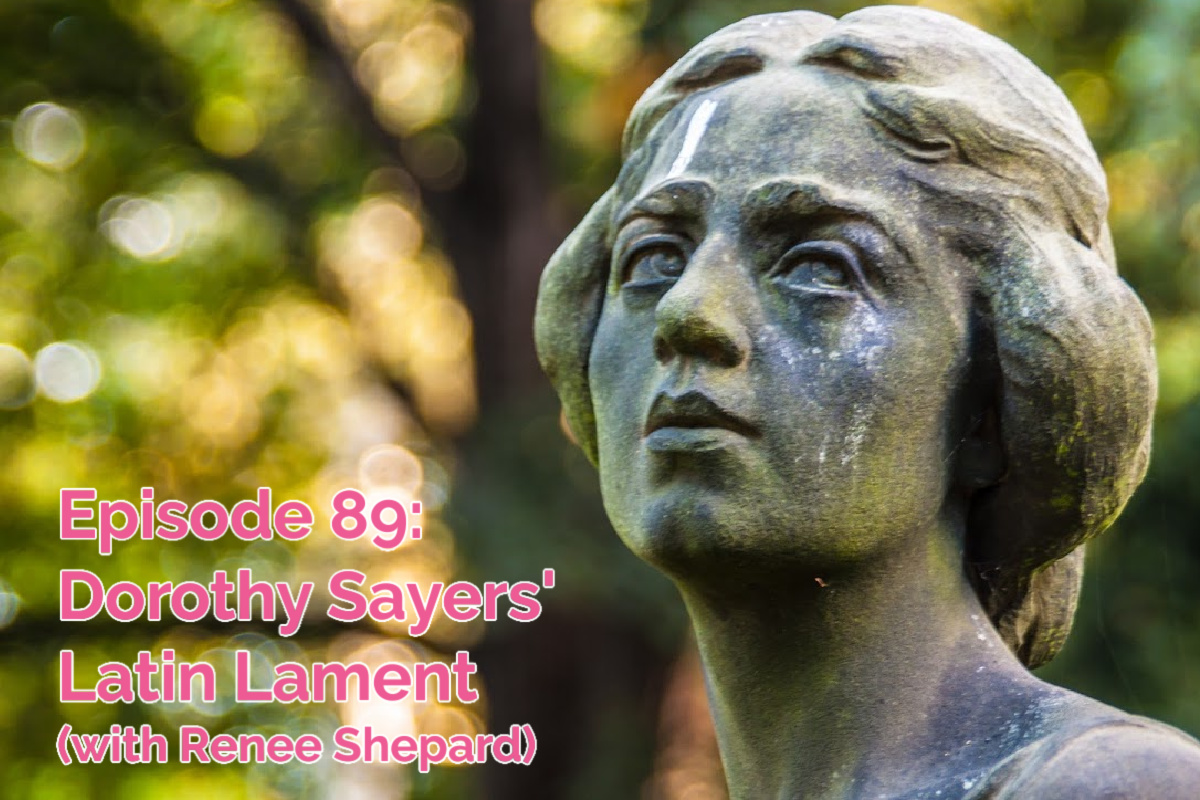


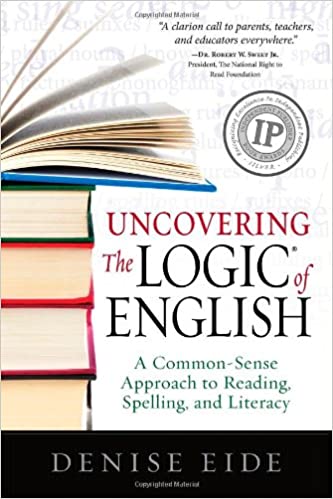
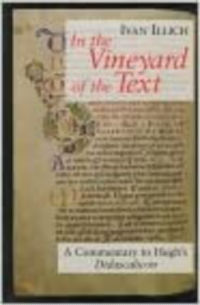
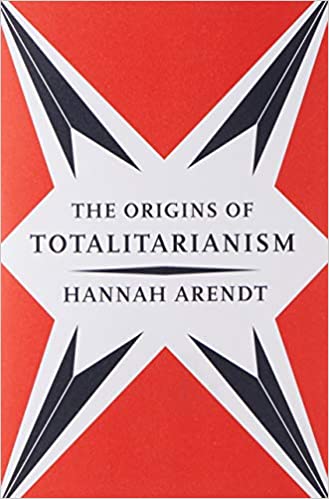

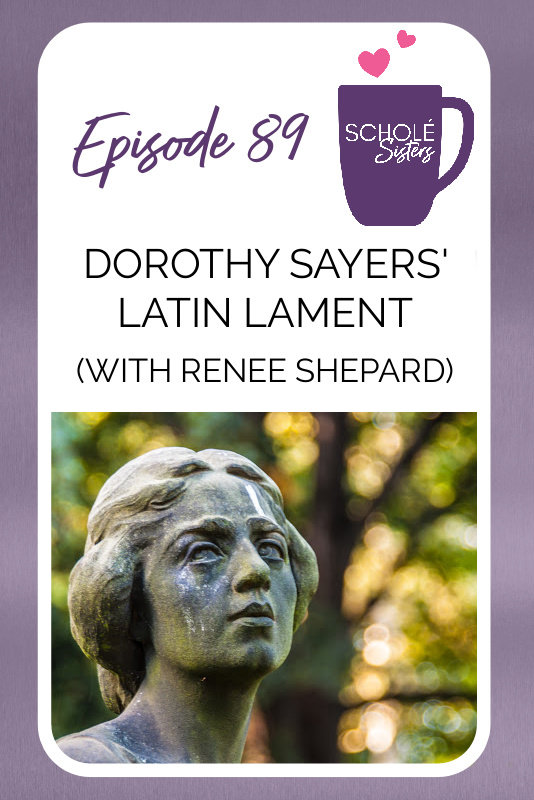




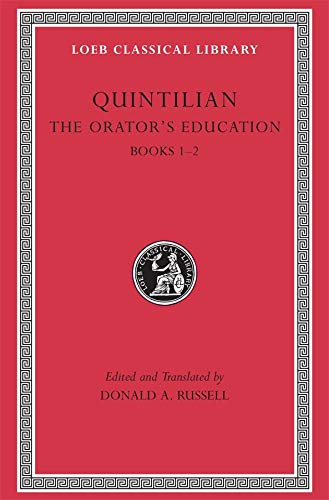









One Comment
Comments are closed.